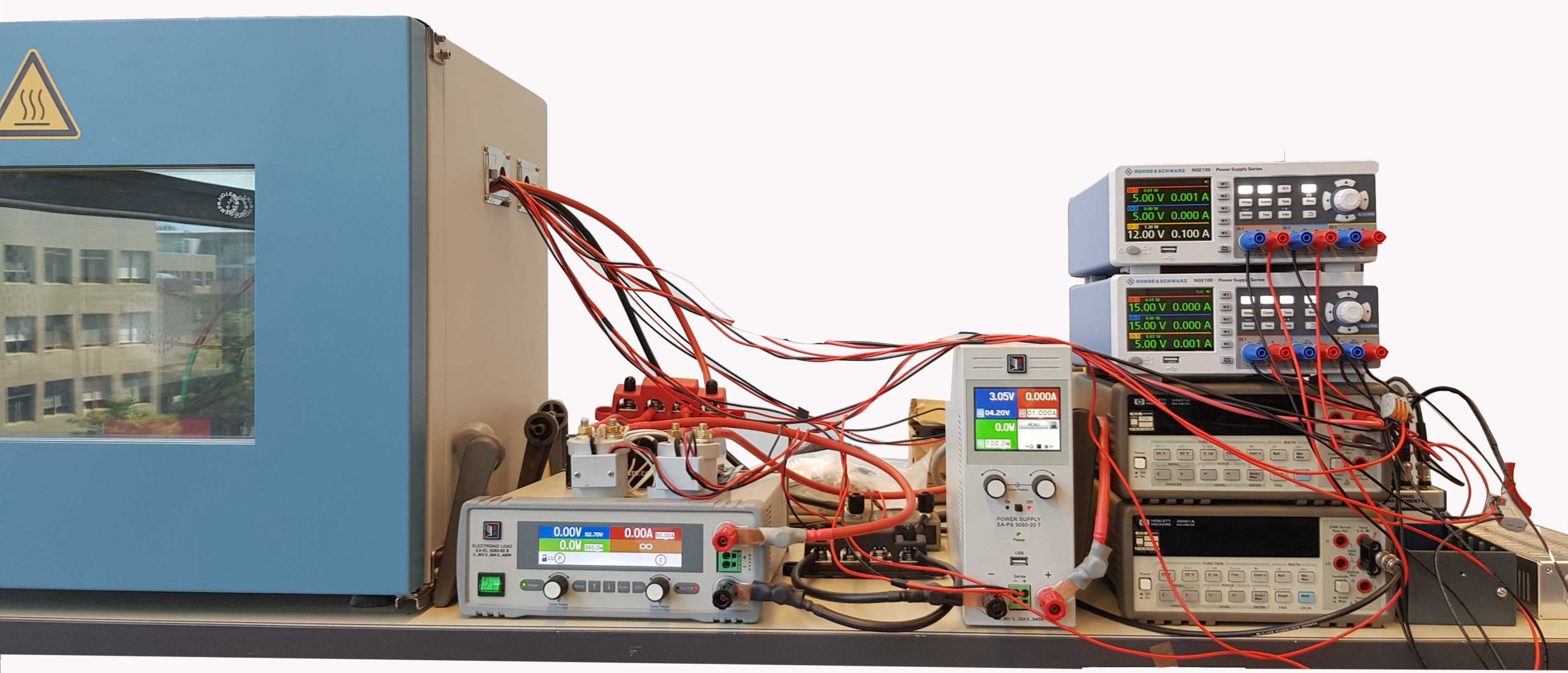Introduction
The EPFLoop project was started as a participation in the SpaceX Hyperloop competition by EPFL students. After two participations in 2018 and 2019 and a year of hiatus, it was restarted as a research project in the EPFL DESL lab, as well as a startup.
When I saw the announcement that the project was restarting, I expressed my desire to help in this endeavor in any capacity I could, and was subsequently hired for electronics development for the reduced scale testing project that has since beaten the world record for longest hyperloop test in 2024.
My main activity consisted in assisting the BESS team in lithium cell characterisation hardware, so I used the provided equiment to build and code a 3kW test-bench that could take the test profiles generated by the BESS team (current and voltage profiles) and apply them to the cells in a controlled temperature environment, while logging the results to a format they could subsequently analyze:
Specifications
-
Supply Power : 3 kW
-
Load Power : 2.4 kW
-
Max Voltage: 80 V
-
LabView compactRIO control of instrumentation via GPIB interface
-
Devices:
- Electronic Load: EA EL 3080
- Power Supplies: EA PS 3080, Rhode & Schwarz NGE 100
- Multimeters: HP 34401A

